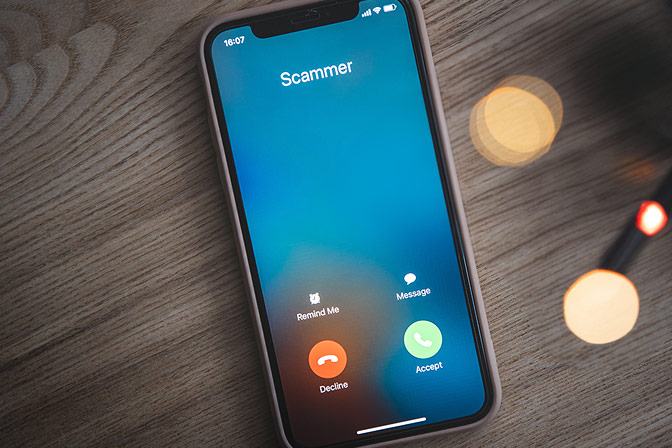Should Attorneys Buy Leads?
December 2, 2021 | Written by Rachel Reynolds

Probably Not.
Buying leads from one of the numerous lead-generation companies targeting law firms may seem like an easy answer, but buyer beware. Lead-generation companies often wow with unbelievable promises during the sales process, leaving you thinking…
that many leads for only pennies?!?!? Why, I’d be a fool not to jump in! But be sure you know what you are jumping into. Do your due diligence, ask the right questions, apply your common sense and what seemed unbelievable might actually be fictitious
Having worked with law firms across the country, for many years, to evaluate a variety of lead-gen services, the primary concern is the quality of the inquiries. We have in-house information and experience from other law firms that we would be happy to share with you. If you would like help evaluating a lead-buying service, you are welcome to evaluate the process with us.
Why Attorneys May Want to Give Lead-Generation Companies a Pass
Low-quality leads are cheap and easy to find. They usually don’t offer much value.
The American Bar Association (ABA) found that
49% of law firms say their best marketing channel is buying web leads. This mean law firms are buying leads from lead-gen companies because they don’t know how to generate their own leads. Attorneys aren’t necessarily well-equipped to market themselves, so they are willing to pay top dollar for expensive leads that are often flat and ineffective. Don’t fall into that trap.
Martindale’s “
State of Online Legal Marketing 2019” found that 65% of law firms said they spent more than half of their marketing budgets on online efforts. Clearly, online is “where it’s at” when it comes to marketing your firm. But getting the best bang for your buck is crucial when it comes to your online budget. Buying leads – which often come in bulk and are not very targeted – can be a waste of money compared to more focused and precise marketing efforts. This is especially true if you don’t have an infrastructure in place to contact, develop and respond promptly to leads that do prove fruitful. So, before attorneys buy leads, they should consider these other options that marketing dollars could be spent on:
- Design and launch a smart, effective website
- Optimize content for SEO
- Be a guest blogger
- Be an aggressive online link-builder
- Explore pay-per-click advertising
- Attend legal conferences and network
- Be a guest speaker at professional or community forums
- Take referral sources out to lunch
- Join some community networking events
- Join some local Facebook groups and be active.
Law firms with limited marketing budgets have to make smart choices when it comes to choosing where to spend their limited dollars. Be sure to measure return-on-investment to determine whether your marketing dollars are working as hard as you do.
American Bar Association: Rule 7.2
When asking should attorneys buy leads, it’s also important to be aware of the ABA’s
Rule 7.2. It’s a rule that gives guidance on lawyer marketing and advertising and also addresses buying leads. The rule says, in part:
“[5] A lawyer may pay others for generating client leads, such as Internet-based client leads, as long as the lead generator does not recommend the lawyer, any payment to the lead generator is consistent with Rules 1.5(e) (division of fees) and 5.4 (professional independence of the lawyer), and the lead generator’s communications are consistent with Rule 7.1 (communications concerning a lawyer’s services). To comply with Rule 7.1, a lawyer must not pay a lead generator that states, implies, or creates a reasonable impression that it is recommending the lawyer, is making the referral without payment from the lawyer, or has analyzed a person’s legal problems when determining which lawyer should receive the referral.”
The
ABA Standing Committee on Lawyer Referral and Information Service adds a caution:
“Lawyers are not permitted to pay others for recommending the lawyer’s services. A communication contains a recommendation if it endorses or vouches for a lawyer’s credentials, abilities or qualities.”
It’s important to note that
lawyer marketing rules can differ from state to state, so be sure to check with your state bar association and other legal professional organizations to make sure any paid lead generation activities you may be considering meet state requirements.
Sound a bit confusing? It can be. A skilled and experienced law firm marketing agency can offer further guidance on what is and is not permissible according to the ABA where advertising and communications are concerned.
Should Attorneys Buy Marketing Lists?
Marketing lists are different than buying leads.
Very different. You can buy a list of contacts from a business or trade publication, for example, to use as a mailing list or email list for your law firm newsletter or eblasts. (These lists are generally a portion of the publication’s subscriber list and can often be parsed and sorted based on demographic criteria.) The purpose of using these lists is more for brand building, increasing visibility, creating word-of-mouth buzz among your peers, and raising awareness about your law firm. These lists typically do not include potential clients in search of a lawyer to file a claim on their behalf. So, with marketing lists, there are no leads, per se, that would generate direct revenue for your law firm. Marketing lists are a cousin to advertising – not lead generation.
Where Do Lead-Gen Companies Get Their Info, Anyway?
By understanding where the lead-buying company is getting their leads, you can better determine whether they are going to be of high quality. Most lead-generation companies skim the bottom of the barrel to find “leads.” Understanding their tactics – email marketing? PPC advertising on the cheap? – will help you gauge the potential value of the leads provided.
Sometimes a lead generation company has an inside connection that helps provide inquiries – these inside relationships can be very useful and generate quality leads. Keep reading to learn more about these rare opportunities….
Leads From an Inside Connection
A few lead-buying services get their leads by having an inside connection with a large network. One example would be a workers’ union. Because they have an agreement with the union, they can market their services to help find attorneys before those workers try to find an attorney on their own. These opportunities frequently out-perform TV, radio,
SEO,
PPC, or any other form of marketing, because the competition is cut out of the equation.
The downside to these opportunities is that they are rare. Most of these offer their clients exclusivity and rarely have openings for new clients. The attorneys that get in on these had an inside connection before the opportunity came about and were one of the first to jump on board. These types of lead-buying companies are unlikely to utilize cold-calling or other types of outreach to find clients. They don’t need to.
If you are approached with such an opportunity, you should try it out. Your firm will know relatively quickly whether the leads are high-quality and appear to be coming from the source that was advertised. If the lead-buying company says they have a connection with a mining union, but the leads aren’t coming from miners, then you know something is wrong.
When asking yourself “Should attorneys buy leads?” remember to investigate the quality of the leads before making a purchase decision.
Leads From Everywhere Else (PPC, Email Marketing, Social Media…)
If a lead-gen company says they do their own marketing, then it likely isn’t going to be a very good deal. Leads are easy to get, and low-quality leads are cheap. Quality leads are not. Lead-buying agencies make more money when they acquire leads at a lower cost, which typically results in lower quality. Let’s take PPC, for example.
If someone has been injured but it was their own fault and they suffered no real damages, then they don’t have a case. These people will do a Google search, call the first firm at the top, and get rejected. Then they call the second firm listed and get rejected. Then the third, and so on. Running a PPC campaign to show at the top of page 1 is expensive, but that is the only way to get your name in front of the people who have a legitimate case. These
high-quality leads aren’t going to make it to the bottom of the results before a law firm signs them.
Google charges less to show ads at the bottom of page 1, or even on page 2.
Lead-buying companies are incentivized to sell you leads regardless of their quality. They will get a higher profit by running the cheap ads that don’t generate high-quality cases. There is always some attorney desperate enough to buy them. Don’t let it be you.
What Are the Exceptions?
If you aren’t proficient in marketing, we don’t recommend trying to find an exception to this rule. The marketing industry and geographic markets are constantly changing. What works today may not work tomorrow. We can’t tell you some secret marketing solution that will allow you to find a hidden gem your competitors haven’t found yet. With that said, we will occasionally speak with a law firm that is happy with their lead-buying service. Here are a few scenarios:
- Early Adopter– Some firms got in with a lead-buying service when they were first starting out. These firms may have grandfather pricing or some other special treatment that allows them to take advantage of the leads. These firms took a risk that paid off, but most of these risks don’t.
- Underserved Market– Some rural geographies are underserved by law firms. In these situations, lead-buying companies may be able to exploit these areas to produce leads at a low cost. If you know of an underserved area, your firm would be better off running the firm’s own ads there; but some lead-buying companies may have better oversight and be able to find these opportunities easier.
- Luck– Sometimes it takes only a single case to make an entire year’s worth of lead-buying worth it.
The bottom line is that if the lead-buying company is generating the leads by utilizing a marketing strategy that the firm could run on its own, the firm is better off running that strategy on its own.
IF THE LEAD-BUYING AGENCY IS UTILIZING PPC, THE FIRM WILL ULTIMATELY PAY MORE PER CASE THAN IF THE FIRM RAN THEIR OWN PPC CAMPAIGN. PAYING A MIDDLEMAN RAISES THE COSTS.
A Final Thought
Some lead-buying companies may sell the same lead to multiple law firms. This obviously cuts down on your opportunity to close that lead. Some companies may be upfront with that policy, and others may hide it. Either way, it isn’t a good thing for you.
I hear what this blog post is saying, but I want to pay a little and get a little. Lead buying seems like an opportunity to do that.
This is the rationale that lawyers most often use when they decide to buy leads. These firms spend an amount per month that they are comfortable with, one that won’t break the firm. In most instances, these firms would be better off saving that money until they have enough saved up to pursue a more aggressive and proven marketing strategy.
We Need More Cases. What Next? Should Attorneys Buy Leads?
If your law firm is looking to increase case load, you need a strategic plan. Randomly shooting in the dark or throwing money at lead-generation schemes isn’t the way to success. Clearly evaluate your situation and have realistic expectations for what marketing can do for you. If you feel stuck and you aren’t sure what to do, the professionals at Gladiator Law Marketing would be glad to help. We may or may not have a service that is right for you, but we can give you some good free advice. We have provided several online guides intended to help you evaluate your firm’s marketing and move toward improved returns. Check these out:
Law Firm Marketing Strategy Guide,
SEO Strategy Guide.
Give Gladiator Law Marketing a Call
If you’re looking for more ideas about how to stretch your marketing dollars and get the biggest bang for your buck, we’d be glad to talk and share ideas. We’ve helped dozens of clients employ strategies to raise their visibility online, generate leads, and convert leads into clients.
Contact us for a free consultation at 1-888-683-3212.







